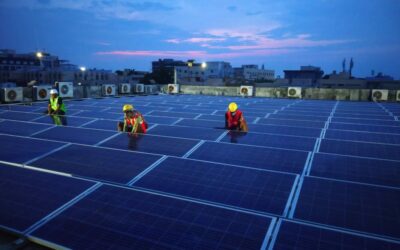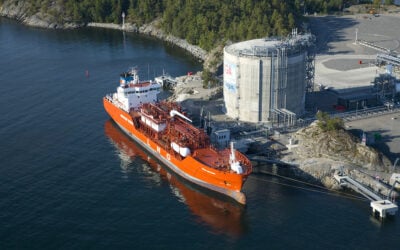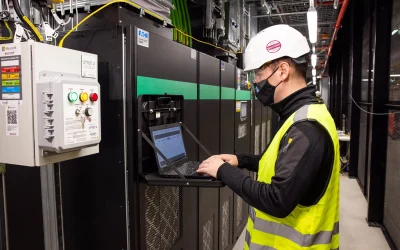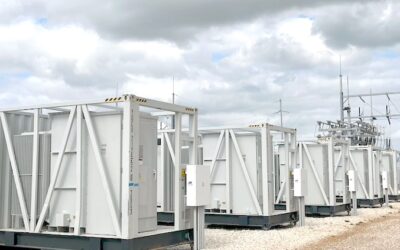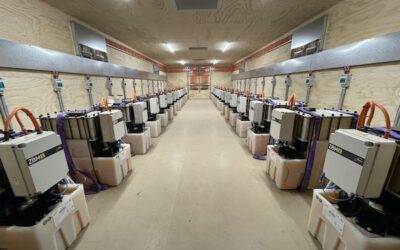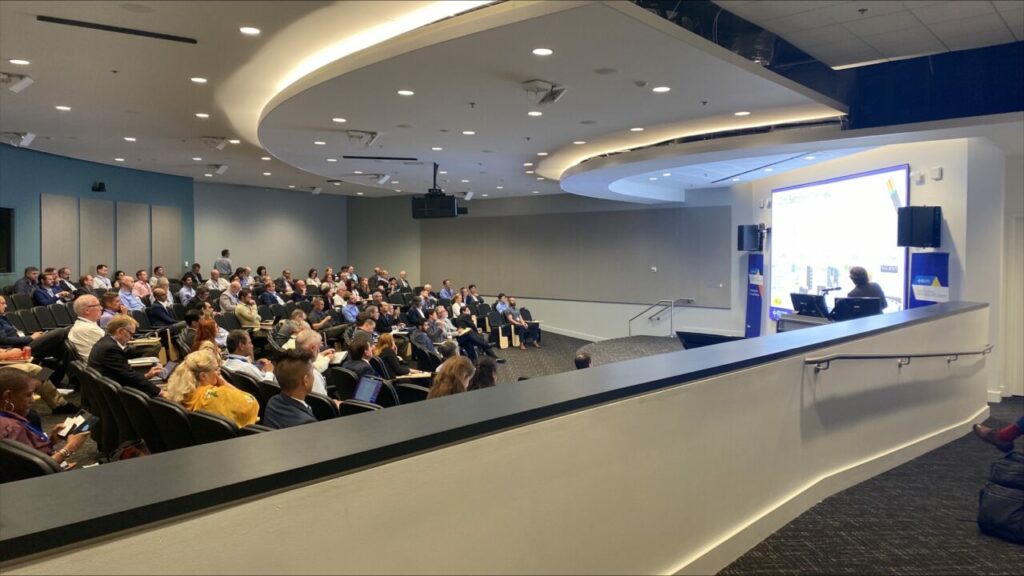
The US Department of Energy (DOE) will commit US$30 million in new awards and funding opportunities for energy storage solutions, as the US looks to dramatically reduce the cost of energy storage systems.
The funding, managed by the DOE’s Office of Electricity (OE), will be split into two equal funds of US$15 million each. One fund will be used to support research into improving the reliability of long-duration energy storage (LDES), systems that can provide energy for at least ten hours, and feed into the OE’s Rapid Operational Validation Initiative, a programme to deliver funding quickly to new energy storage systems.
Enjoy 12 months of exclusive analysis
- Regular insight and analysis of the industry’s biggest developments
- In-depth interviews with the industry’s leading figures
- Annual digital subscription to the PV Tech Power journal
- Discounts on Solar Media’s portfolio of events, in-person and virtual
Or continue reading this article for free
In March this year, the initiative committed US$2 million in funding to six DOE national laboratories to aid in their research, and the US$15 million in new funding could help accelerate research into battery storage systems.
The other half of the DOE funding will be used to support what the DOE called “pre-competitive” systems, those at an earlier stage of the research and development pipeline and not yet ready for commercial implementation.
A storage ‘supercharge’
“These funding opportunities will ‘supercharge’ the future of energy storage and enable cost-effective solutions for all Americans’ electricity needs,” said Gene Rodrigues, assistant secretary for electricity in the OE. “This is the culmination of extensive stakeholder outreach over the past year, as well as the hard work of our energy storage division which is on the forefront of spurring development of the most advanced long-duration storage available.”
While the DOE did not announce which companies or projects would receive the funding, these initiatives will aim towards the 2030 targets set by the Energy Storage Grand Challenge (ESGC), which includes a number of ambitious targets for the US energy storage sector.
Launched in December 2020, the challenge aims to reduce the levelised cost of storage for LDES by 90% between 2020 and 2030, which will drive the price of storing energy to just US$0.05/kWh. The ESGC also targets a 44% in reduction in the cost of producing a battery pack for an electric vehicle with a range of 300 miles over this period, which would put the price of producing such a battery system at US$80/kWh.
ESGC funding has been used to support a number of storage projects, including the Grid Storage Launchpad, which is being built by the Pacific Northwest National Laboratory (PNNL) in Washington with US$75 million of government funding. The department expects the launchpad to begin operation next year, and will be optimistic that its latest round of funding will be used for similarly ambitious research and development projects.
The ESGC has also committed US$17.9 million in funding for four companies – Largo Clean Energy, TreadStone Technologies, OTORO Energy and Quino Energy – to develop new research and manufacturing processes for the energy storage sector.
Positive trends in US storage systems
The DOE announced these new funding opportunities at the ESGC Summit in Atlanta. The department also noted that the PNNL and Argonne National Laboratory would serve as lab coordinators for the ESGC project for the next two years. The DOE’s OE and Office of Energy Efficiency and Renewable Energy will each provide US$300,000 in funding to cover the costs of the ESGC scheme until the end of the 2024 financial year.
The new funding has been greeted positively by parts of the global commodities sector, as International Zinc Association (IZA) executive director Andrew Green has described his organisation as “thrilled” with the news.
“The IZA is thrilled to see the DOE announce significant new investments in energy storage,” said Green, drawing attention to increasing interest in zinc as a component in battery storage systems. “We’re excited about the opportunities zinc batteries bring to this sector. We look forward to collaborating via the Zinc Battery Initiative to address these new initiatives.”
The news follows dramatic increases in the capacity of battery storage systems in the US in recent years. According to figures from the Energy Information Administration, the net cumulative capacity of large-scale battery storage systems in the US increased from 149.6MW in 2012 to 8.8GW in 2022. The rate of growth is also increasing significantly, with the 2022 capacity almost double the capacity of the previous year, which reached 4.9GW.
Government funding will likely be crucial to meeting some of the US’s more ambitious energy storage targets, both in terms of increasing the capacity of US storage systems in place, and developing technologies such as LDES. Last November, the DOE announced US$350 million in funding for LDES projects in particular, as the government looks to encourage innovation in the sector.

